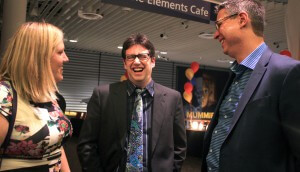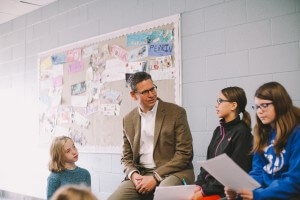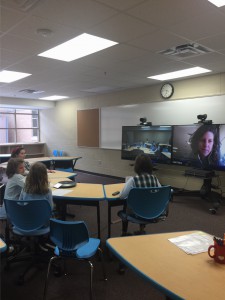May 26, 2016
This is the last week of classes for our outstanding senior class and I am truly going to miss them. Although there are many events, traditions, and celebrations leading up to graduation, this week will be bittersweet. Early in the year, I had lunch with them in small groups and I enjoyed hearing their reflections on their time at MPA and was inspired by their hopes for the future. A common theme that emerged from those lunches was that MPA not only helped them develop the gifts and talents they already had, it helped them discover gifts and talents they never knew were possible. They also spoke of the influence MPA had in discovering their own uniqueness, as well as inspiring them to embrace the same in others.
It can be challenging to get a pulse on how engaged students are with their school. The National Association of Independent Schools (NAIS) has partnered with Indiana University to measure student engagement through the use of the High School Survey of Student Engagement (HSSSE). This survey is taken by hundreds of thousands of students in public, private, and independent schools across the nation. The data are rich and the contrasts significant. For instance, in 2015, 60 percent of the participating students in independent schools indicated that their schools contributed “very much” to their ability to write effectively (versus 31 percent for the public school students) and 59 percent indicated the same for their critical thinking skills (verses 29 percent). Read More








